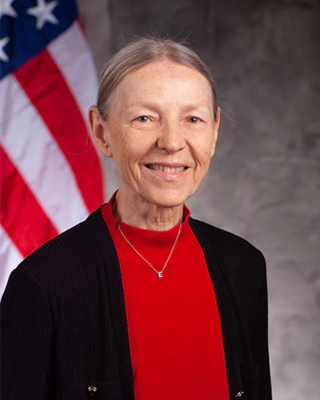Related Research Articles

A pandemic is an epidemic of an infectious disease that has spread across a large region, for instance multiple continents or worldwide, affecting a substantial number of individuals. Widespread endemic diseases with a stable number of infected individuals such as recurrences of seasonal influenza are generally excluded as they occur simultaneously in large regions of the globe rather than being spread worldwide.

An epidemic is the rapid spread of disease to a large number of hosts in a given population within a short period of time. For example, in meningococcal infections, an attack rate in excess of 15 cases per 100,000 people for two consecutive weeks is considered an epidemic.

In epidemiology, an infection is said to be endemic in a specific population or populated place when that infection is constantly present, or maintained at a baseline level, without extra infections being brought into the group as a result of travel or similar means. The term describes the distribution (spread) of an infectious disease among a group of people or within a populated area. An endemic disease always has a steady, predictable number of people getting sick, but that number can be high (hyperendemic) or low (hypoendemic), and the disease can be severe or mild. Also, a disease that is usually endemic can become epidemic.

Michael Thomas Osterholm is an American epidemiologist, Regents Professor at the University of Minnesota School of Public Health, and director of the Center for Infectious Disease Research and Policy at the University of Minnesota.

The European Centre for Disease Prevention and Control (ECDC) is an agency of the European Union (EU) whose mission is to strengthen Europe's defences against infectious diseases. It covers a wide spectrum of activities, such as: surveillance, epidemic intelligence, response, scientific advice, microbiology, preparedness, public health training, international relations, health communication, and the scientific journal Eurosurveillance. The centre was established in 2004 and is headquartered in Solna, Sweden.
Infection prevention and control is the discipline concerned with preventing healthcare-associated infections; a practical rather than academic sub-discipline of epidemiology. In Northern Europe, infection prevention and control is expanded from healthcare into a component in public health, known as "infection protection". It is an essential part of the infrastructure of health care. Infection control and hospital epidemiology are akin to public health practice, practiced within the confines of a particular health-care delivery system rather than directed at society as a whole.
WEDI, pronounced "wee dee", is a not-for-profit user group in the United States for users of Electronic Data Interchange (EDI) in public and private healthcare. It is sometimes referred to by other names including some or all of the words Workgroup for Electronic Data Interchange.

In health care facilities, isolation represents one of several measures that can be taken to implement in infection control: the prevention of communicable diseases from being transmitted from a patient to other patients, health care workers, and visitors, or from outsiders to a particular patient. Various forms of isolation exist, in some of which contact procedures are modified, and others in which the patient is kept away from all other people. In a system devised, and periodically revised, by the U.S. Centers for Disease Control and Prevention (CDC), various levels of patient isolation comprise application of one or more formally described "precaution".
The Association for Professionals in Infection Control and Epidemiology (APIC) is a private nonprofit professional organization based in Arlington, VA for healthcare practitioners dedicated to the principles of infection control. APIC has more than 15,000 members. APIC concentrates its efforts in the hospital, nursing home and home health settings.

Professor Kevin Andrew Fenton, is a Public Health Physician and Infectious Disease Epidemiologist. He is the London Regional Director at Office for Health Improvement and Disparities, Regional Public Health Director at NHS London and the Statutory Health Advisor to the Mayor of London, Sadiq Khan. He is the current President of the United Kingdom Faculty of Public Health and holds Honourable Professorships with the University College London and London School of Hygiene and Tropical Medicine.
An infection rate is the probability or risk of an infection in a population. It is used to measure the frequency of occurrence of new instances of infection within a population during a specific time period.
The Health Protection Surveillance Centre (HPSC) is part of Ireland's Health Service Executive.
The Society of Infectious Diseases Pharmacists (SIDP) is a non-profit association of pharmacists and other allied health professionals who specialize in infectious diseases and antimicrobial stewardship. According to the Board of Pharmaceutical Specialties, clinical pharmacists specializing in infectious diseases are trained in the use of microbiology and pharmacology to develop, implement, and monitor drug regimens that incorporate the pharmacodynamics and pharmacokinetics of antimicrobials for patients.

Outbreak response or outbreak control measures are acts which attempt to minimize the spread of or effects of a disease outbreak. Outbreak response includes aspects of general disease control such as maintaining adequate hygiene, but may also include responses that extend beyond traditional healthcare settings and are unique to an outbreak, such as physical distancing, contact tracing, mapping of disease clusters, or quarantine. Some measures such as isolation are also useful in preventing an outbreak from occurring in the first place.

COVID-19 surveillance involves monitoring the spread of the coronavirus disease in order to establish the patterns of disease progression. The World Health Organization (WHO) recommends active surveillance, with focus of case finding, testing and contact tracing in all transmission scenarios. COVID-19 surveillance is expected to monitor epidemiological trends, rapidly detect new cases, and based on this information, provide epidemiological information to conduct risk assessment and guide disease preparedness.

During the COVID-19 pandemic, face masks or coverings, including N95, FFP2, surgical, and cloth masks, have been employed as public and personal health control measures against the spread of SARS-CoV-2, the virus that causes COVID-19.

The COVID-19 pandemic has had many impacts on global health beyond those caused by the COVID-19 disease itself. It has led to a reduction in hospital visits for other reasons. There have been 38 per cent fewer hospital visits for heart attack symptoms in the United States and 40 per cent fewer in Spain. The head of cardiology at the University of Arizona said, "My worry is some of these people are dying at home because they're too scared to go to the hospital." There is also concern that people with strokes and appendicitis are not seeking timely treatment. Shortages of medical supplies have impacted people with various conditions.

Elaine Lucille Larson is an American infectious disease specialist. As a Professor of Epidemiology at the Columbia University Mailman School of Public Health, she has published four books and more than four hundred articles on the subjects of infection prevention and control, disease epidemiology, and related issues. In 2017, Larson was named a "Living Legend" by the American Academy of Nursing, the Academy's highest honor.

The impact of the COVID-19 pandemic on Native American tribes and tribal communities has been severe and has emphasized underlying inequalities in Native American communities compared to the majority of the American population. The pandemic exacerbated existing healthcare and other economic and social disparities between Native Americans and other racial and ethnic groups in the United States. Along with black Americans, Latinos, and Pacific Islanders, the death rate in Native Americans due to COVID-19 was twice that of white and Asian Americans, with Native Americans having the highest mortality rate of all racial and ethnic groups nationwide. As of January 5, 2021, the mortality impact in Native American populations from COVID-19 was 1 in 595 or 168.4 deaths in 100,000, compared to 1 in 1,030 for white Americans and 1 in 1,670 for Asian Americans. Prior to the pandemic, Native Americans were already at a higher risk for infectious disease and mortality than any other group in the United States.

COVID-19 is predicted to become an endemic disease by many experts. The observed behavior of SARS-CoV-2, the virus that causes COVID-19, suggests it is unlikely it will die out, and the lack of a COVID-19 vaccine that provides long-lasting immunity against infection means it cannot immediately be eradicated; thus, a future transition to an endemic phase appears probable. In an endemic phase, people would continue to become infected and ill, but in relatively stable numbers. Such a transition may take years or decades. Precisely what would constitute an endemic phase is contested.
References
- 1 2 3 4 5 "Devin Jopp | CEO - Association for Professionals in Infection Control & Epidemiology". Forbes Nonprofit Council. Retrieved 2023-12-13.
- 1 2 3 4 5 6 7 "Devin Jopp, Ed.D. | COVID Collaborative". www.covidcollaborative.us. Retrieved 2023-12-13.
- 1 2 Moore, Breshay (2023-08-08). "Dr. Devin Jopp Joins National Health Council Board of Directors". National Health Council. Retrieved 2023-12-13.
- ↑ Diamond, Frank (2020-10-08). "APIC Appoints Devin Jopp as CEO". Infection Control Today. Retrieved 2023-12-13.
- 1 2 3 4 5 "Devin Jopp, EdD, MS". APIC. Retrieved 2023-12-13.
- ↑ "Hood College". hood.smartcatalogiq. Retrieved 2023-12-19.
- 1 2 Greenberg, Liza; D'Andrea, Guy; Lorence, Dan (June 8, 2004). "Setting the Public Agenda for Online Health Search: A White Paper and Action Agenda". Journal of Medical Internet Research. 6 (2): e18. doi: 10.2196/jmir.6.2.e18 . PMC 1550592 . PMID 15249267.
- ↑ "Health Website Accreditation". URAC. Retrieved 2023-12-20.
- ↑ "Fact Sheet: White House Launches "Startup America" Initiative". The White House. Retrieved 2023-12-19.
- ↑ "Health Insurance Portability and Accountability Act of 1996 (HIPAA) | CDC". www.cdc.gov. 2022-06-28. Retrieved 2023-12-19.
- ↑ "availity.com/documents/PR_WEDI_Report_032813.pdf" (PDF).
- ↑ "Virtual Clipboard Definition and Design". Workgroup for Electronic Data Interchange (WEDI). 2015-05-20. Retrieved 2023-12-19.
- ↑ "Becker's Hospital Review - Healthcare News". www.beckershospitalreview.com. Retrieved 2023-12-19.
- ↑ Communications, SVM Public Relations & Marketing. "EHNAC, WEDI to accredit practice systems". EHNAC. Retrieved 2023-12-19.
- ↑ Leigh, Shannon (2015-06-25). "Healtheway Launches New Strategy and Changes Corporate Name to The Sequoia Project". The Sequoia Project (Press release). Retrieved 2023-12-19.
- ↑ "WEDI, EHNAC Announce Plan to Accredit Practice Management Systems". www.beckershospitalreview.com. 2014-03-05. Retrieved 2023-12-13.
- ↑ "WEDI, NATE partner to advance interoperability with Virtual Clipboard Initiative". Healthcare IT News. 2015-09-28. Retrieved 2023-12-13.
- ↑ "WEDI to keep ICD-10 issue reporting tool live post-Oct. 1; CMS will monitor switch in real time".
- ↑ "CHWP Home". www.acha.org. Retrieved 2023-12-19.
- ↑ "Devin Jopp on Safely Reopening Colleges and Universities | C-SPAN.org". www.c-span.org. Retrieved 2023-12-13.
- ↑ Huey, Michael J.; Crihfield, Connie; Jopp, Devin (2020-11-16). "The second fifty years: A history of the American College Health Association". Journal of American College Health. 68 (8): 798–814. doi:10.1080/07448481.2020.1859856. ISSN 0744-8481. PMID 33571081. S2CID 231884532.
- ↑ "Breaking the Logjam of Collegiate Drug Abuse – Devin A. Jopp, EdD, is Chief Executive Officer of the American College Health Association (ACHA)".
- ↑ "Our Leaders". www.acha.org. Retrieved 2023-12-13.
- ↑ "American College Health Association". ProPublica. 2013-05-09. Retrieved 2023-12-13.
- ↑ "Devin A Jopp, American Coll Health Assn: Profile and Biography". Bloomberg.com. Retrieved 2023-12-13.
- ↑ "New Data Illustrate COVID-19 Pandemic Negatively Impacted Infection Preventionists' Mental and Physical Health". APIC. Retrieved 2023-12-13.
- ↑ "EGPAF Joins Global Health Partners in Urging White House to Make Swift Request from Congress For Robust Emergency Funding for Global COVID-19 Response - EGPAF". ElizabethGlaserPediatricAIDSFoundation. Retrieved 2023-12-13.
- ↑ "Building Infection Safe Communities". APIC. Retrieved 2023-12-19.
- ↑ "IP Academic Pathway". APIC. Retrieved 2023-12-19.
- ↑ "U.S. Department of Labor Office of Apprenticeship Issues National Occupational Framework (NOF) for IPs". APIC. Retrieved 2023-12-19.
- ↑ "Global Infection Prevention and Control Network". www.who.int. Retrieved 2023-12-19.
- ↑ "Global strategy on infection prevention and control". www.who.int. Retrieved 2023-12-19.
- ↑ Jopp, Devin. "Council Post: Keys To Jump-Starting A DEI Program In Your Organization". Forbes. Retrieved 2023-12-19.
- 1 2 Councils, Forbes. "Boardcraft by Devin A. Jopp - Forbes Councils". councils.forbes.com. Retrieved 2023-12-13.
- ↑ "ACHA Releases New Guidelines on Reopening Campuses in the COVID-19 Era". markets.businessinsider.com. Retrieved 2023-12-19.
- ↑ "How colleges are preparing to welcome back students | Fox Business Video". Fox Business. 2020-06-18. Retrieved 2023-12-19.
- ↑ "Devin Jopp on Safely Reopening Colleges and Universities | C-SPAN.org". www.c-span.org. Retrieved 2023-12-19.
- ↑ "APIC and Argentum Partner on Infection Prevention and Control Training for Assisted Living Centers". APIC. Retrieved 2023-12-19.
- ↑ "Between a Rock and Hard Place, March 2022". APIC. Retrieved 2023-12-19.
- ↑ Melnyk, Bernadette Mazurek; Hsieh, Andreanna Pavan; Mu, Jinjian; Jopp, Devin A.; Miller, Sara (2023-01-01). "Associations among infection prevention professionals' mental/physical health, lifestyle behaviors, shift length, race, and workplace wellness support during COVID-19". American Journal of Infection Control. 51 (1): 62–69. doi: 10.1016/j.ajic.2022.04.004 . ISSN 0196-6553. PMC 9279141 . Retrieved 2023-12-23.
- ↑ Wright, Sharon B.; Dickey, Linda L. "Joint Statement of the Association for Professionals in Infection Control and Epidemiology (APIC) and the Society for Healthcare Epidemiology of America (SHEA)" . American Journal of Infection Control. 51 (1): 1. doi:10.1016/j.ajic.2022.10.010. S2CID 255373567 . Retrieved 2023-12-23.